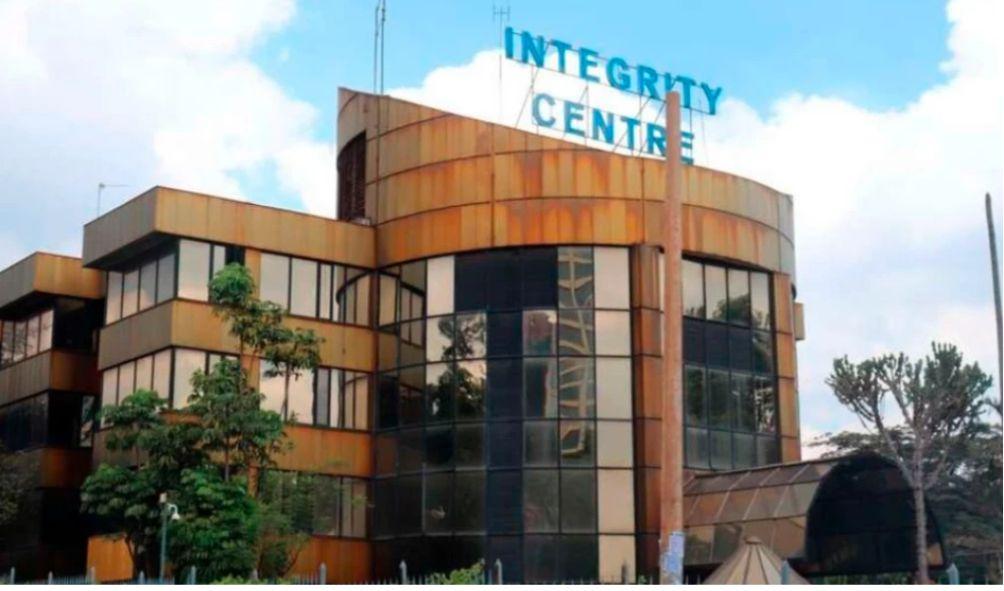EACC Sounds Alarm Over Controversial Anti-Corruption Law Amendment Bill
The Ethics and Anti-Corruption Commission (EACC) is concerned about proposed amendments to the anti-corruption law contained in a bill introduced by Geoffrey Ruku, a representative for Mbeere North.
The Bill, which seeks to amend certain sections of the law, has sparked concerns that it may impede investigations and pave the way for scandals and abuse involving procurement.
During a workshop in Mombasa that brought together procurement professionals from national and county governments, EACC Deputy CEO Abdi Mohamud voiced his concern regarding the proposed amendments. These changes, he warned, would permit suspects to commit theft of public funds without facing appropriate consequences.
Mohamud emphasized that more than 80 percent of EACC’s forensic investigations concern procurement irregularities. Instead of weakening the existing anti-corruption law with these amendments, he emphasized the need to strengthen it.
The Deputy CEO explained further that the EACC is currently prioritizing cases involving the misappropriation of public funds, many of which stem from fraudulent and manipulated procurement processes in national and county governments. He revealed that the investigation into the alleged theft of 1 billion Kenyan shillings in Siaya County will be concluded within two weeks.
Mohamud disclosed that the progress made in prosecuting corruption offenders and recovering ill-gotten wealth is largely attributable to noncompliance with procurement laws, guidelines, and procedures—exactly what the proposed Bill seeks to eliminate from the law.
According to the EACC, the proposed National Assembly Bill would repeal key provisions of the Anti-Corruption and Economic Crimes Act of 2003, thereby weakening the fight against corruption.
Specifically, the bill seeks to amend section 45(2) of the Act by removing two offenses: failure to follow procurement guidelines and undertaking a public project without prior planning. Currently, these provisions hold public officials accountable for protecting public funds.
ALSO READ: Power Struggle: NPSC and Inspector General Clash, Leaving 1,000 Police Promotions in Limbo
The proposed legislation contends that procurement flaws and expenditures on unplanned projects are administrative errors that can be remedied through non-punitive means rather than criminal prosecution.
However, the EACC argues that amendments to anti-corruption laws should strengthen the legal framework rather than provide perpetrators with legal loopholes.
Mohamud warned that substituting administrative actions for criminal sanctions for serious procurement-related corruption offenses would only embolden corrupt individuals and hinder efforts to combat corruption and economic crimes.
The EACC is concerned that if the proposed amendments pass, they will have far-reaching consequences, including a surge in corruption scandals fueled by manipulated procurement processes, all within a weakened legal framework that fails to hold wrongdoers accountable.
In addition, the proposed amendments would encourage the allocation of public funds to unplanned projects and hinder the efficient use of public resources.
Common corrupt practices facilitated by procurement practitioners include fraud, bribery through the receipt of kickbacks, extortion of contractors and suppliers, conflict of interest, procurement of substandard goods and services, bid rigging, poor contract management, awarding of bids to self, employees, and their families, and skewed bid evaluation to produce predetermined outcomes.
The EACC stresses that noncompliance with procurement laws and regulations has resulted in criminal sanctions against offenders and the recovery of billions of public funds obtained through fraudulent procurement processes.
EACC Sounds Alarm Over Controversial Anti-Corruption Law Amendment Bill
HEY READER. PLEASE SUPPORT THIS SITE BY CLICKING ADS. DON’T FORGET TO HIT THE NOTIFICATION BELL FOR MORE UPDATES AROUND THE GLOBE.
